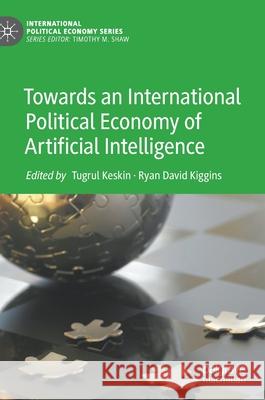Towards an International Political Economy of Artificial Intelligence » książka
topmenu
Towards an International Political Economy of Artificial Intelligence
ISBN-13: 9783030744199 / Angielski / Twarda / 2021 / 258 str.
Kategorie BISAC:
Wydawca:
Palgrave MacMillan
Seria wydawnicza:
Język:
Angielski
ISBN-13:
9783030744199
Rok wydania:
2021
Wydanie:
2021
Numer serii:
000304620
Ilość stron:
258
Waga:
0.48 kg
Wymiary:
21.01 x 14.81 x 1.75
Oprawa:
Twarda
Wolumenów:
01
Dodatkowe informacje:
Wydanie ilustrowane











